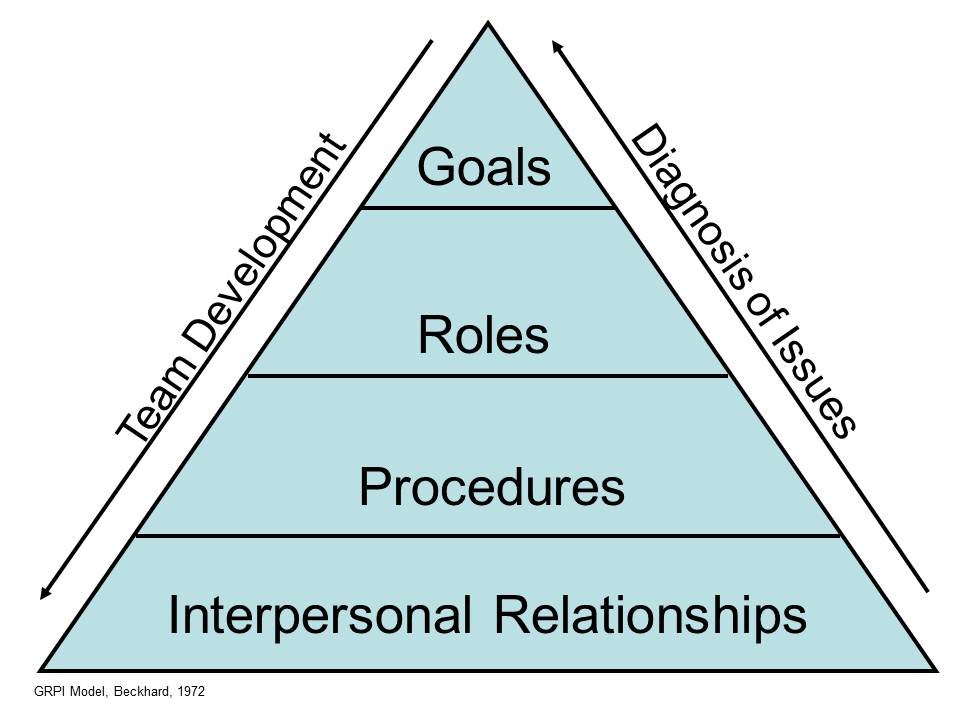7 tips to unlock your team’s development potential
Published

What is the secret to long-term happiness at work? While things like friendly teammates, perks, and year-end bonuses bring joy from time to time, say psychologists , that the key to long-term happiness lies in your mind.
That is, in your attitude. And a growth mindset can have a profound impact on your happiness and success in all aspects of life, including work.
The concept can also be transferred to teams and organizations. Those who foster a growth-oriented environment experience greater innovation and a stronger sense of trust, responsibility and commitment across the team.
So what is a growth mindset and how can you unlock it? We'll go into all of this in the following sections.
Fixed versus growth mindset

Those : wrike.com
The concept of growth mindset was developed by Stanford psychologist Carol Dweck developed.
In her book Mindset: The New Psychology of Success, Dweck defines two different mindsets.
- Fixed way of thinking: The belief that one's intelligence, abilities and talents are fixed - we are born with it and cannot change it.
- Growth Mindset: The view that one's intelligence, skills and talents are learnable - we can improve them over time through practice and effort.
Someone who works with a fixed mindset can easily become frustrated when presented with a new challenge because they believe they will fail if they don't already have the skills necessary to accomplish the task. They tend to see feedback as criticism and even an attack on their personal character.
Someone with a growth mindset, on the other hand, may see a new challenge as an opportunity to expand their skills and expertise. They take feedback less personally because they believe it will help them become even better at what they do.
Do any of these ways of thinking apply to you?
If the fixed mindset examples sound familiar, don't worry - it's completely normal. In fact, we are rarely just one or the other when it comes to growth and fixed mindsets. Most of the time we are a combination of both.
Benefits of a Growth Mindset in the Workplace
So does it really make a big difference which mindset you work with? Dweck says: absolutely.
Shifting to a growth mindset can have a profound impact on all aspects of life, especially work, where the ability to be resilient, competitive and innovative is essential to success.
People with a growth mindset are more willing to learn new things, challenge themselves, and improve their skills frequently.
They are happier at work and have a higher likelihood of progressing in their roles and responsibilities.
Research shows that teams that promote a growth mindset also perform better. Team members are 34% more likely to feel a sense of belonging, loyalty and commitment to the team, and trust in the team can increase by 47%.
Experts also say that a growth mindset can lead to more innovation. With more open feedback loops and psychological safety, team members feel more comfortable pushing boundaries and taking risks.
Team members feel equally valued - rather than just having one or two "star players" - and are therefore more able to communicate openly with one another.
7 Tactics to Promote a Growth Mindset in the Workplace

Those : my.casual.vision
1. Invest in the development of your team
If you want your team to put growth first, you need to show that it is highly valued within your company.
Communicating the value of learning within the organization is one of the most powerful ways teams can create a growth-oriented environment. One way to demonstrate this value is to regularly engage in learning opportunities for your Team to invest.
If possible, provide team members with an educational stipend that they can use for courses, workshops, and conferences to improve their skills. Exchange interesting books, articles and lectures with each other. Or try setting up mentorship and apprenticeship programs where employees can receive career coaching and look over others' shoulders at work.
2. Train your team to give and receive feedback
Dweck says another key feature that fosters a growth-oriented environment is providing feedback in a way that promotes learning and future success. However, good feedback is an art form that requires a lot of practice to get right.
As a leader, start by providing your team with tools and resources to better deal with constructive feedback. Talk to your team often about feedback to make sure the processes you put in place are working for everyone.
Establish regular cadences and processes to ensure you provide frequent feedback - developmental feedback, constructive criticism and, more importantly, praise and appreciation. It's important to standardize this process and ensure you do this regularly.
3. Reframe failure
If you want to have a growth mindset, you can't be afraid of failure.
Failure is a prerequisite for growth. It's an opportunity from ours errors to learn to reorient ourselves and emerge stronger from them.
What matters is how people fail, how they react to failure, and where those failures lead.
In fact, research shows a direct connection between the way we respond to failure and ultimate success. Those who take the time to learn from failure and strategically adapt what didn't work the first time are more likely to succeed than those who fail and try again without developing that understanding.
Too often, fear of failure stops teams from taking risks and trying new things.
Accepting failure helps team members know that it's okay to push their limits and try new skills without having to be perfect.
The best way to change your team's attitude toward failure is to model it yourself.
Missed a deadline? Started with an error? Talk about your personal failures and what you can all learn from them.
In this way, you create the conditions for greater psychological safety so that the rest of the team also feels comfortable sharing their experiences with failure.
4. Building a culture of experimentation
Building a culture of experimentation within your team is another way to show that successes and failures are valued.
In order to innovate successfully, companies must make experimentation an integral part of everyday life - even when budgets are tight. Experimentation and growth are based on the same ideas: try something new, see how it works, recalibrate and try again. Rather than making a costly mistake, the culture of experimentation views failure as valuable learning.
It also democratizes decision-making, encourages curiosity across the team, and can help employees feel more accountable and invested in outcomes.
5. Set goals for professional growth, not just performance
To embed the growth mindset, encourage your team to set personal growth goals every quarter and take them as seriously as any other goal.
You could have yours Employees encourage them to expand on their current skills or explore new areas of interest that they are passionate about.
Some examples are:
- Practice public speaking and give a talk at a company lunch and learn.
- Participate in a weekly creative writing class
- Shadow a team member for 2 hours/week to learn more about their role
Also incorporate growth into your team's performance evaluation process by assessing team members not only on how hard they worked in the quarter, but also on how they expanded their role, responsibilities, and expertise.
Companies that have a growth mindset encourage appropriate risk-taking, knowing that some risks will not pan out. They reward their employees for important and useful insights, even if a project does not achieve its original goals.
6. Don't be afraid to ask questions

Those : leadership.deakin.edu.au
Fear of asking questions - because it implies you don't know all the answers - is a mindset that leads to information silos and other major communication problems at work.
To avoid this, let your team know that it's okay if they don't have all the answers. This is another team norm that works best when leaders and Manager exemplify them. Show your team that there are no stupid questions and open the door to being vulnerable.
7. Hire for potential
In a growth mindset environment, a new skill is viewed as learnable, says Dweck. This means that everyone on a team can be able to grow into a specific role and take on new tasks, challenges and leadership opportunities.
One way managers can demonstrate their commitment to a growth mindset is by hiring employees based on their potential and promoting them internally whenever possible.
When hiring for potential, you should look not just at credentials, but also at things that show a strong growth mindset in candidates. Things like a passion for learning, growth in previous positions (even if unrelated to the current one), collaboration skills, and a love of new challenges are all strong indicators of a person's growth potential.








